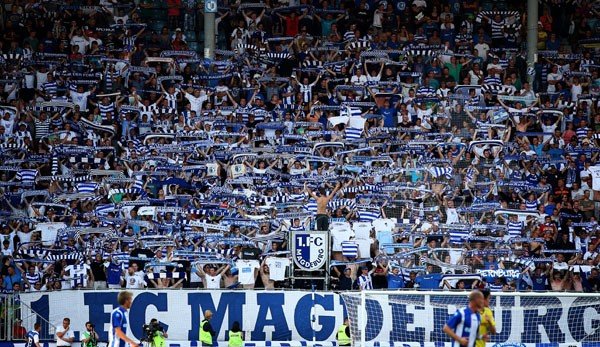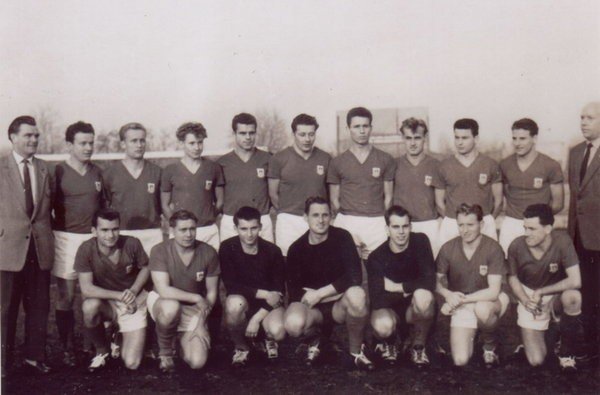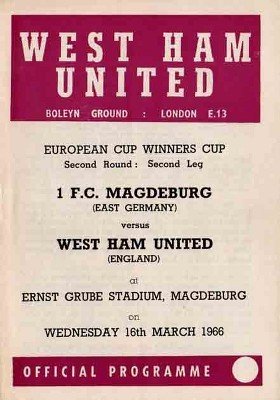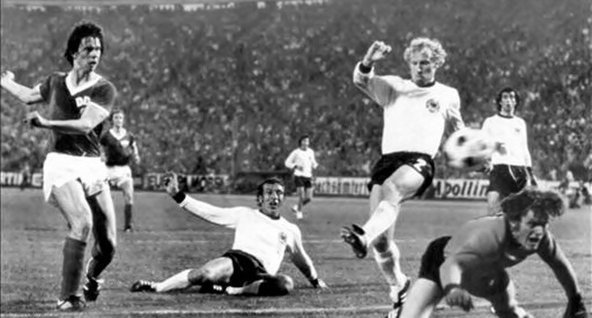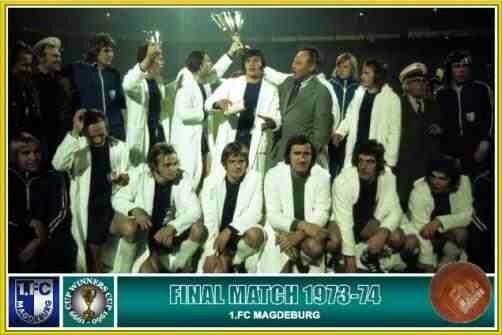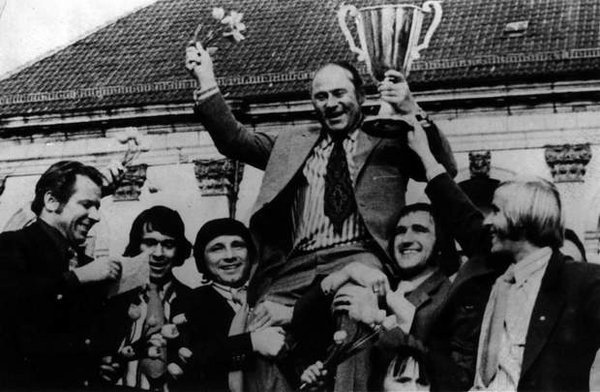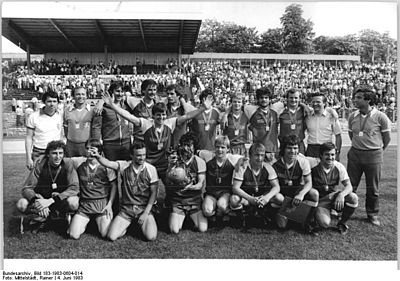_______________________________________
Christopher Steegmann Signs As New Manager
26 June 2017
- Christopher Steegmann signs one year deal as manager at MDCC Arena
- Former Schalke and FC Kaiserslautern defender excited by prospect
- Manager aiming for push for push for promotion to 2. Bundesliga
1. FC Magdeburg have today confirmed that Christopher Steegmann has been named as the successor to Jens Hartel, who left the managerial position at the MDCC Arena last week. Steegmann joins Magdeburg having never managed at club level before but the 38 year old has studied for his UEFA Continental A License as well as working under former Schalke manager Jens Keller at 2. Bundesliga side 1. FC Union Berlin. There Steegmann, says that he learnt his trade and developed his coaching philosophy and the ideologies that he will now look to implement at Magdeburg as the club looks to make it’s way out of the 3. Liga and reach the 2. Bundesliga for the first time in the club’s history.
Steegmann’s playing career spanned 15 years and saw the new manager turn out for Bundesliga clubs 1. FC Kaiserslautern and boyhood club FC Schalke 04, as well playing under Jurgen Klopp at Mainz briefly.
During a 15 year career, Steegmann achieved moderate success, playing for three Bundesliga sides in FC Kaiserslautern and FSV Mainz before ending his career in Gelsenkirchen at Schalke. Steegmann would go on to reach the UEFA Cup Semi Finals in 2001 with Kaislerslautern before moving on to play under one of Germany’s most charismatic coaches in Jurgen Klopp at Mainz. However the former centre back fell out of favour at what is now the Opel Arena, and was moved on to Schalke. The 7 times Bundesliga Champions though utilised Steegmann more favourably and the defender would become a mainstay of the defensive unit at the VELTINS-Arena during his 9 years at the club, helping them to win the DFB-Pokal in 2011, in what would be Steegmann’s only major honour of his playing career.
At his official unveiling with the cities media out in force, with excitement buzzing around the MDCC-Arena, Steegmann went on to reveal his hopes for his time at Magdeburg and spoke about how his playing career would influence his new role as manager at a club like Magdeburg:
26 June 2017, Christopher Steegmann: This is very exciting for my career as a manager and it is an opportunity to build up this once magical club to the levels that it desires to be at once again. It used to play at the very top and now I want to help them get back to where they want to be. They’re taking a chance on me because I’ve only ever been an assistant before, but I am confident in my ability to take this club forward and help this team achieve things. We’ve missed out on promotion narrowly over the last couple of seasons but now is the time to put an end to the near misses and go on and fight for that promotion to the 2. Bundesliga.
Alongside Steegmann at his official unveiling was club president Peter Fechner, who along with the press was excited by the club’s official announcement and went on to praise Steegmann, and declared his excitement at working with his new manager:
26 June 2017, Peter Fechner: For us to be able to announce this appointment is something very exciting for this club. From his playing days Christopher brings an awful lot of experience with him at the very highest level and he has worked extensively with a very good manager in Jens [Keller] for just over a year. We talked for a long time about what he wants to bring to this club and what he hopes to achieve and I am sure that this is going to mark the start of an exciting new era for this club. What we achieved under Jens [Hartel] was brilliant and the foundations are in place now for Christopher to go and build on that success.
Comments
Joshleedsfan: Yeah these posts took a long time to write, glad everyone seems to be digging them, can’t wait to get stuck in!
ScottT: Thanks mate, glad people are enjoying them, was fun to write to be honest
AaronHJFT96: Thanks mate, glad you’re enjoying it, hoping to make this my most detailed story yet! Thanks for the follow, I too am looking forward to competing in the Bundesliga
Griffo: Thanks man, awesome to have you back on board!
 Previous Update: #2 1. FC Magdeburg: The Story So Far – Part II
Next Update: #4 Felix Lohkemper Becomes Steegmann's First Signing
Previous Update: #2 1. FC Magdeburg: The Story So Far – Part II
Next Update: #4 Felix Lohkemper Becomes Steegmann's First Signing




